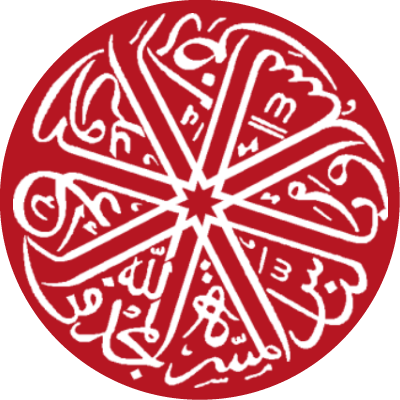Works by Diez, Martino, 1979‒ as author 13
L'altra Arabia : ʿAdī Ibn Zayd alla corte di Ḥīra
Editions 1
Au coeur du sunnisme : le premier interprète est le Prophète, puis ses Compagnons
Editions 1
Les douze « Mainteneurs » du Coran
Dans la collection la plus importante de hadîths chiites, la centralité absolue des imams se manifeste dans le choix de rapporter les propos attribués non seulement à Muhammad, mais aussi à ses succes Dans la collection la plus importante de hadîths chiites, la centralité absolue des imams se manifeste dans le choix de rapporter les propos attribués non seulement à Muhammad, mais aussi à ses successeurs. Bon nombre de ces traditions portent sur la nécessité d’un guide infaillible, inspiré par Dieu. Ce guide ne peut être le seul Coran, objet d’interprétations divergentes et conflictuelles : il faut un « Mainteneur », tout comme il faut un cœur pour les organes sensoriels.
Editions 1
Introduzione alla lingua araba : origini, storia, attualità
Editions 2
Penser (et dialoguer) en utilisant les catégories de l'autre
Editions 1
The profession of Monotheism by Elias of Nisibis: an edition and translation of the Fifth Session of the Kitāb al-majālis
The Kitāb al-majālis (‘Book of Sessions’) is a unique document in medieval Christian–Muslim dialogue. It recounts seven exchanges between the Nestorian Metropolitan Elias and the Shiʿite vizier Abū al The Kitāb al-majālis (‘Book of Sessions’) is a unique document in medieval Christian–Muslim dialogue. It recounts seven exchanges between the Nestorian Metropolitan Elias and the Shiʿite vizier Abū al-Qāsim al-Maghribī. The dialogues, which took place in the city of Nisibis (Upper Mesopotamia) in 417/1026, cover a range of topics both religious (in particular the doctrines of the Trinity and the Incarnation) and profane. In spite of its importance, most of the text has not yet been critically edited. This article, after surveying the manuscript tradition, offers a critical edition and an English translation of the fifth session, which contains the famous profession of monotheistic faith by Elias. The last two paragraphs, which discuss the contents of the text and the influence on it of Muʿtazilī thought, argue for its substantial authenticity and highlight both its value and its limits. While these are bound to Elias’s simplified Christology and his essentially defensive approach, his profession of faith remains a jewel in Arab Christian literature and a brilliant example of the role of mediators played by Christian communities living in Muslim lands.
Editions 1
Relationships with other works 1
Teaching Arabic to the Angels: a Scherzo by al-Maʿarrī on heavenly morphology
Editions 1
Relationships with other works 1
Théologie-fiction : prophétie de la oumma à venir
Au cœur de la crise de l’autorité dans le monde sunnite contemporain.
al-Juwaynî imagine un monde islamique qui n’a plus de calife, ni un gouvernement unitaire d’un « imam d’usurpation » ou sultan.
Au cœur de la crise de l’autorité dans le monde sunnite contemporain.
al-Juwaynî imagine un monde islamique qui n’a plus de calife, ni un gouvernement unitaire d’un « imam d’usurpation » ou sultan. Le juriste indépendant, capable de déduire de nouvelles normes, s’est éteint ; de la loi coranique, ce sont surtout les préceptes cultuels et les normes du droit de la famille qui sont restés vivants. L’alternative est claire : ou chercher à ressusciter les juristes indépendants, ou bien reconnaître l’autonomie des réalités temporelles.
Editions 1
Theorie und Praxis der arabischen Lexikographie, di Manfred Ullmann
Editions 1
Relationships with other works 1
With Ibn Ḫaldūn in his workshop
Ibn Ḫaldūn spent the last 24 years of his life in Egypt. There he enlarged the scope of his history, venturing beyond the boundaries of his own civilization. In this process, three authors played a cr Ibn Ḫaldūn spent the last 24 years of his life in Egypt. There he enlarged the scope of his history, venturing beyond the boundaries of his own civilization. In this process, three authors played a crucial role: the Copto-Arabic historian Ibn al-ʿAmīd al-Makīn, the Josippon, and the Arabic translation of Orosius. Adopting a “coring method”, and based on Ibn al-ʿAmīd’s forthcoming edition, this article studies the use of the Coptic historian in a very limited, but significant, sample of Ibn Ḫaldūn’s history, i.e., the passage devoted to the Achaemenids. The comparison between the two texts allows to draw some conclusions regarding the process of transmission of historical materials from late antiquity to Islam. First, historiography was perceived by Ibn Ḫaldūn and several other Muslim authors as a discipline in which non-Muslims could participate, and the Bible was generally considered as a reliable source of information. Second, the accounts on pre-Islamic history which were more likely to be preserved shared three traits: they were mostly understandable, relevant to the readers, and non-controversial.
Editions 1
